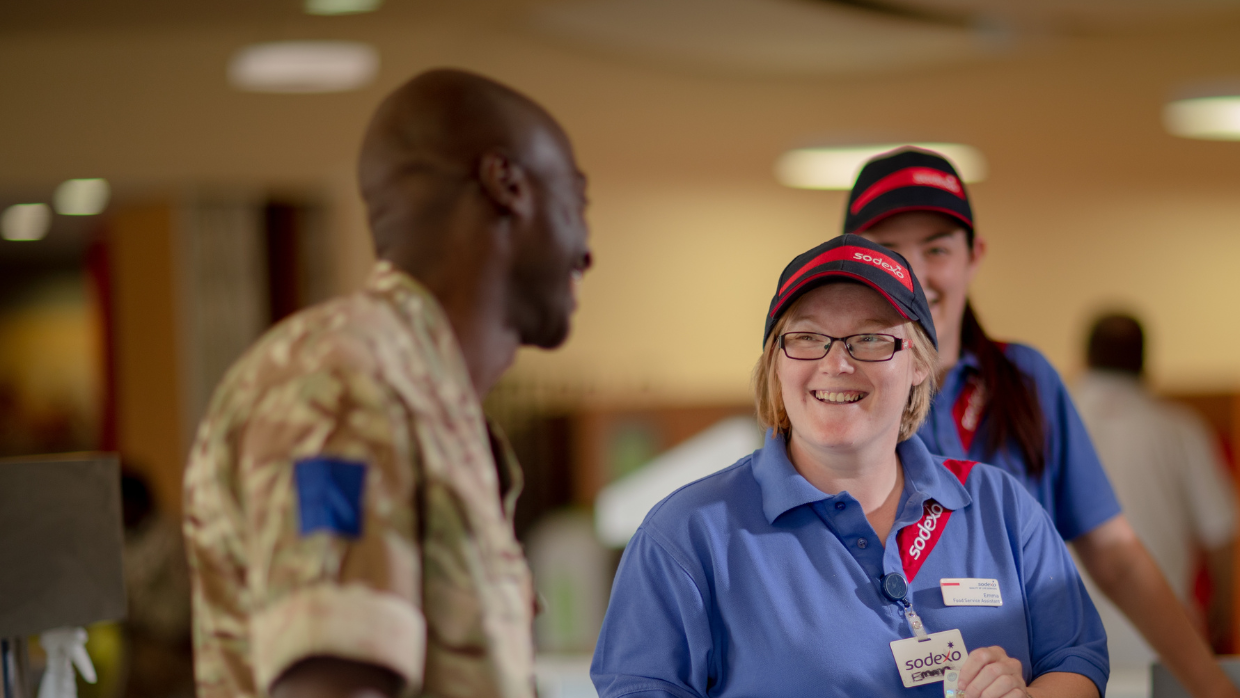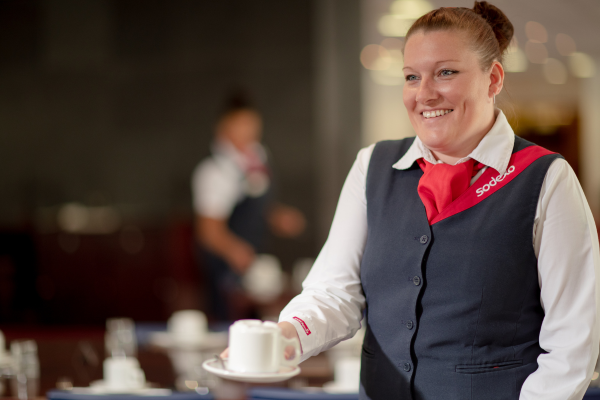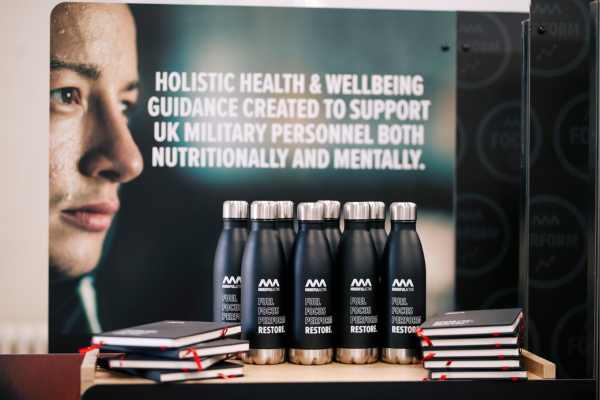
Supporting the wellbeing of the Whole Force through Soft FM
Facilities management touches every aspect of our lives and is key to maintaining a healthy environment. For the armed forces, it is not only about the workplace, but also how people live and eat. While hard FM services such as plumbing, lighting and heating are important, true wellbeing is determined by the lived experience- underpinned by soft FM.
The lived experience of service personnel on base is heavily influenced by the physical environment, the food they eat and what they do in their spare time. It defines their wellbeing as well as their satisfaction with the role, so its impact on operational capability cannot be overstated.
Catering, waste management and cleaning make a significant difference to day-to-day life on base and should be adaptable to local preferences as well as the changing needs of the military.
Delivered well, such soft FM services help to ensure a seamless experience, supporting health, wellbeing, and the readiness of a unit.
New expectations for retail and leisure
The importance of food and its effect on physical and mental wellbeing is well understood. It also plays a critical role in shaping opportunities for social interaction and building camaraderie.

Yet catering and food-related facilities must go further. Expectations for retail and leisure services on base are shaped by high street experiences, and surveys show that service personnel feel many sites are lacking.
Leisure facilities are underutilised because opening hours do not always suit the working patterns of personnel, while Ipsos MORI research commissioned by Sodexo in December 2021 identified concerns over the variety and availability of goods at retail outlets. Many enjoy cooking for themselves, so they need suitable facilities to do so, and want a variety of good-value food available to purchase locally.
Richard Jones, Operations Director for Sodexo Government, says expectations have evolved and a new approach is needed. “It is really important for recruitment and retention that we create environments that meet these expectations,” he explains.
The lived experience isn’t just about a dining facility that people eat in. It is about the journey that the customer takes from entering the gates in the morning to going home in the evening.
Sodexo’s work in other sectors has informed solutions such as Village, which provides opportunities to socialise in a relaxing space that serves the needs of personnel, including self-cook facilities away from accommodation, in a more communal atmosphere.
Such soft FM services go well beyond traditional messing, empowering people to self-cook and creating opportunities to build better relationships.
The technology to enhance FM services
Our retail facilities are complemented by technology that supports click and collect services, while self-checkout tills are set to be implemented at some sites. Systems that allow stock levels and demand to be monitored means that we can adapt to maintain supplies as well as introduce new lines that reflect the desires of the people on site.
Similar technology is applied to support other aspects of soft FM.
Cleaning services, for instance, are aided by management software that provides necessary insight to make tasks more efficient, and supports better reporting of both hard and soft FM faults. This not only reduces costs for the service, but also makes the environment more comfortable for personnel.
At Allenby Connaught, InMoment – a revolutionary system that allows customers to provide real-time feedback on their dining experience via their mobile device- has been implemented. The analytics dashboard provides in-depth analytics which allow us to address issues in real time and make data-driven decisions in partnership with clients.
The wealth of insight that this platform can deliver marks a step change in data analytics,” explains Richard McGimpsey, Insight and Research Manager. “As well as providing key customer experience and satisfaction metrics, we will be able to track trends over time and deepen our understanding of the customer’s wants and needs. The user interface is simple to access from any dining table by scanning a QR code, and really appeals to mobile-first younger personnel."
In waste management, meanwhile, innovative solutions such as WasteWatch are improving the efficiency of food service. Chefs can use intelligent systems to monitor what is popular, adapt to people’s preferences and minimise costs by avoiding unnecessary waste.
The system has been in place for just over six years at Colchester, where Sodexo’s kitchens have saved the equivalent of nearly 53,000 meals. This equates to almost £97,000 in savings from reduced waste and has helped avoid the emission of 200 metric tons of CO2. There is still work to be done at every site, but these efforts are dramatically reducing the impact of catering facilities on the environment as well as making better use of resources.
The holistic approach to wellbeing
While various services can support and improve life on base in their individual ways, ultimately the holistic approach delivers the greatest impact.
It has become increasingly apparent that a health-conscious generation of recruits need to be supported in new, more comprehensive ways as they seek to take greater control over their wellbeing.

Sodexo’s Mindful Active programme does this by combining multiple elements of soft FM. Based on four pillars - Fuel, Focus, Perform and Restore - it empowers personnel to understand their own nutritional needs and to meet them.
Alex Crawford, Marketing Manager for Sodexo Government, notes that it was developed in response to growing variations in requirements. When people have engaged in tough physical training, they might concentrate on the Restore pillar and the meals or recipes it recommends. In other circumstances, they will choose differently.
“People on a base all have different dietary, nutritional and training requirements,” says Alex. “We can provide the information they need and allow it to be easily digestible and accessible, so they can then make an informed decision.”
For the armed forces, this has four significant benefits:
- Welfare and holistic wellbeing, with mental health benefiting as well as physical.
- Recruitment and retention are improved when people feel better supported and more engaged.
- An agile workforce who are eating and training appropriately for their tasks.
- Operationally capable personnel who are ready for the unique challenges of deployment.
WO1 (SSM) Colin Sinclair of Army HQ Regional Command has observed the implementation of Mindful Active at Army Training Regiment Winchester. “We’re asking our service personnel to put their lives on the line, so we need to invest in them,” he says. “We take that commitment very seriously and by investing in these facilities we show them they are valued.”
A healthy lived experience
Sodexo’s approach to soft FM in the military is informed by many years of experience not only in the Defence sector, but also in industries such as education and oil and gas, where people live away from families and friends for extended periods of time.
That reality emphasises the need to support a healthy work-life balance with effective, agile, and adaptable services. The lived experience is not only shaped by the workplace, but also by life outside of it: the ease with which personnel can access suitable retail and leisure facilities, the effectiveness of cleaning services and waste management all contribute to health and wellbeing.
By taking a more collaborative approach, the client, military, and civil service employees, on-base contractors and industry partners can benefit from a better lived experience, better recruitment, improved retention, and enhanced performance across the board.
We are working closer together than ever before, but there is so much more we can do together to strengthen and improve the Whole Force. Closer tripartite working between client, customers and industry partners allows the many examples of excellence to be leveraged and shared across the Defence estate for the benefit of all.